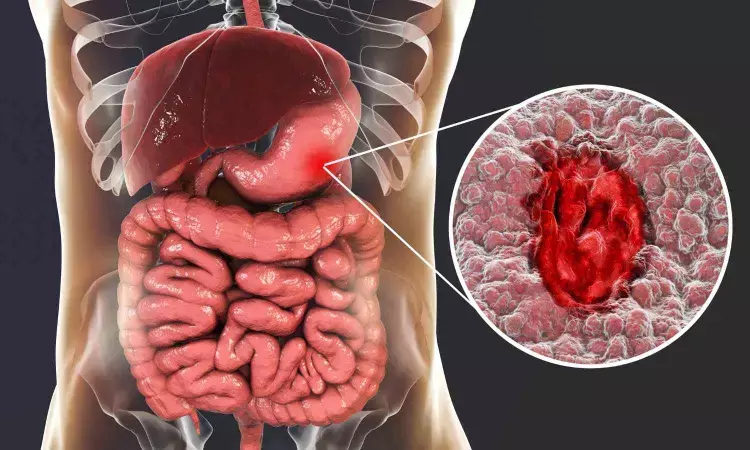- Home
- Medical news & Guidelines
- Anesthesiology
- Cardiology and CTVS
- Critical Care
- Dentistry
- Dermatology
- Diabetes and Endocrinology
- ENT
- Gastroenterology
- Medicine
- Nephrology
- Neurology
- Obstretics-Gynaecology
- Oncology
- Ophthalmology
- Orthopaedics
- Pediatrics-Neonatology
- Psychiatry
- Pulmonology
- Radiology
- Surgery
- Urology
- Laboratory Medicine
- Diet
- Nursing
- Paramedical
- Physiotherapy
- Health news
- Fact Check
- Bone Health Fact Check
- Brain Health Fact Check
- Cancer Related Fact Check
- Child Care Fact Check
- Dental and oral health fact check
- Diabetes and metabolic health fact check
- Diet and Nutrition Fact Check
- Eye and ENT Care Fact Check
- Fitness fact check
- Gut health fact check
- Heart health fact check
- Kidney health fact check
- Medical education fact check
- Men's health fact check
- Respiratory fact check
- Skin and hair care fact check
- Vaccine and Immunization fact check
- Women's health fact check
- AYUSH
- State News
- Andaman and Nicobar Islands
- Andhra Pradesh
- Arunachal Pradesh
- Assam
- Bihar
- Chandigarh
- Chattisgarh
- Dadra and Nagar Haveli
- Daman and Diu
- Delhi
- Goa
- Gujarat
- Haryana
- Himachal Pradesh
- Jammu & Kashmir
- Jharkhand
- Karnataka
- Kerala
- Ladakh
- Lakshadweep
- Madhya Pradesh
- Maharashtra
- Manipur
- Meghalaya
- Mizoram
- Nagaland
- Odisha
- Puducherry
- Punjab
- Rajasthan
- Sikkim
- Tamil Nadu
- Telangana
- Tripura
- Uttar Pradesh
- Uttrakhand
- West Bengal
- Medical Education
- Industry
Eradication Therapy Significantly Reduces Gastric Cancer Risk in H. pylori-Positive Individuals: Meta-Analysis Finds

UK: A recent meta-analysis published in Gastroenterology Journal has bolstered the argument for H. pylori eradication as a preventive strategy against gastric cancer.
The study revealed that treatment in healthy H. pylori-positive individuals resulted in a 36% lower risk of developing gastric cancer and a 22% reduced risk of death from the disease. Additionally, in patients with gastric neoplasia undergoing endoscopic mucosal resection, the risk of cancer was reduced by nearly 50%.
Screening for and treating Helicobacter pylori (H. pylori) in the general population or patients with early gastric neoplasia could significantly reduce the incidence and mortality of gastric cancer, a leading cause of cancer-related deaths worldwide. Although H. pylori eradication therapy has been shown to lower gastric cancer risk, no country has yet adopted screening due to the currently low quality of evidence. Considering this, Alexander C. Ford, Leeds Gastroenterology Institute, St. James’s University Hospital, Leeds, UK, and colleagues conducted an updated meta-analysis of randomized controlled trials (RCTs) exploring this issue.
For this purpose, the researchers conducted a literature search up to October 4, 2024, identifying studies that examined the effect of eradication therapy on gastric cancer incidence in H. pylori-positive adults without gastric neoplasia at baseline or in H. pylori-positive patients with gastric neoplasia undergoing endoscopic mucosal resection (EMR).
The studies included both RCTs and observational studies. The control arm in RCTs received a placebo or no eradication therapy, while in observational studies, no eradication therapy was administered. The follow-up period was at least two years. Relative risks (RR) for gastric cancer incidence and mortality were estimated.
The following were the key findings of the study:
- Eleven RCTs and 13 observational studies were included in the analysis.
- In RCTs, the relative risk (RR) of gastric cancer was lower with eradication therapy in healthy H. pylori-positive individuals (eight RCTs: 0.64) and in H. pylori-positive patients with gastric neoplasia undergoing EMR (three RCTs: 0.52).
- The RR of death from gastric cancer was lower with eradication therapy in healthy H. pylori-positive individuals (five RCTs: 0.78).
- In observational studies, the RR of future gastric cancer was lower with eradication therapy in H. pylori-positive individuals without gastric neoplasia at baseline (11 studies: 0.56) and in H. pylori-positive patients with gastric neoplasia undergoing EMR (two studies: 0.19).
"This meta-analysis provides further evidence that eradication therapy can prevent gastric cancer in H. pylori-positive individuals, with consistent results across various study designs," the researchers wrote.
"However, the findings should be interpreted with caution due to the low number of events in many studies, which may have led to an underestimation of heterogeneity. Additionally, since only two of the studies were conducted outside East Asia, the applicability of these results to other regions may be limited," they concluded.
Reference:
Ford, A. C., Yuan, Y., Park, J. Y., Forman, D., & Moayyedi, P. (2025). Eradication Therapy to Prevent Gastric Cancer in H. Pylori-positive individuals: Systematic Review and Meta-analysis of Randomized Controlled Trials and Observational Studies. Gastroenterology. https://doi.org/10.1053/j.gastro.2024.12.033
Dr Kamal Kant Kohli-MBBS, DTCD- a chest specialist with more than 30 years of practice and a flair for writing clinical articles, Dr Kamal Kant Kohli joined Medical Dialogues as a Chief Editor of Medical News. Besides writing articles, as an editor, he proofreads and verifies all the medical content published on Medical Dialogues including those coming from journals, studies,medical conferences,guidelines etc. Email: drkohli@medicaldialogues.in. Contact no. 011-43720751


